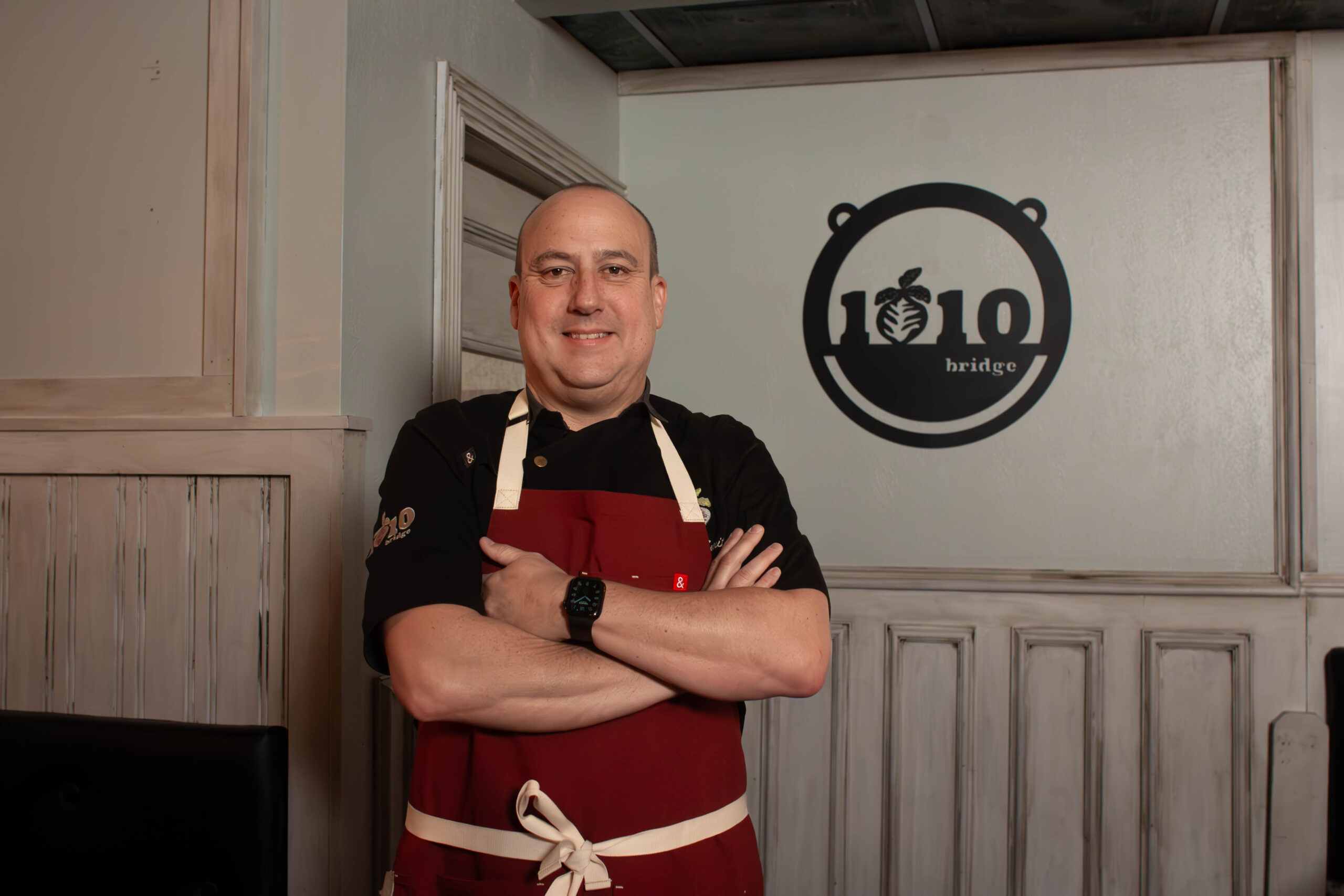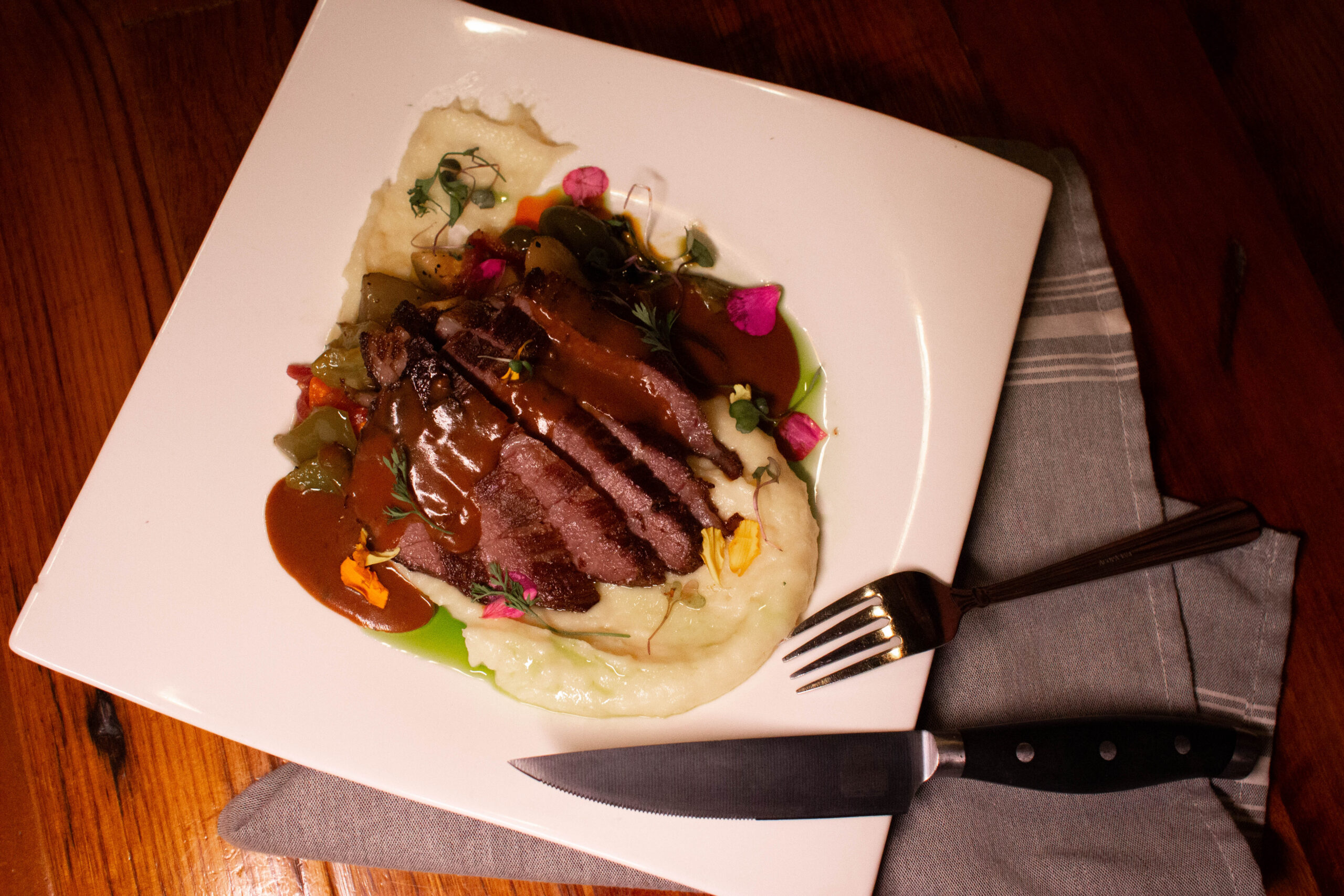
The clatter of pans, the hiss of hot oil and the chorus of cooks might feel like chaos. For Chef Paul Smith, it’s the sound of clarity.
“The kitchen saved my life,” he says.
Named the 2025 Certified Angus Beef Chef of the Year, Smith is more than a celebrated chef—he’s a catalyst for change in Charleston, West Virginia, where he’s transforming the region’s food identity.
A two-time James Beard Award nominee, he earned the honor on his second try in 2025. But it’s not the accolades that drive him. It’s the kitchen itself—a place that gave him purpose and a path forward.
Reviving Appalachian Dining
Smith grew up in Charleston, West Virginia, a place often overlooked on the national food map. But he’s made it his mission to change that. At 1010 Bridge, his flagship restaurant, he’s transforming Appalachian comfort food with an elevated approach.
“There are preconceived notions about West Virginia,” Smith says. “But this state is not what you think. The food is not what you think.”
His menu showcases local ingredients alongside high-quality products, including the Certified Angus Beef ® brand, a signature thread in his beef dishes.
“I’ve always used the Certified Angus Beef ® brand. Even before I knew why, I just felt it was better,” he says.
At 1010 Bridge, instead of leaning on familiar cuts like filet or ribeye, Smith features underutilized cuts—like the Certified Angus Beef ® teres major, known on his menu as the ‘1010 cut.’
“I learned how to use those cuts at The Culinary Center, ” Smith says. “Anybody can cook a tenderloin, but can you turn underutilized cuts like the chuck flap or teres major and make them a center of the plate option?”
The answer to his question is yes and remains the foundation at 1010 Bridge night after night.
That same philosophy carries over to his latest restaurant, Paulie’s, a fine Italian concept that explores his love of regional cuisine. In both kitchens, Smith challenges what guests expect from West Virginia dining, proving what’s possible when underutilized cuts—and overlooked ideas—are given new life.
Leading With Heart
Smith doesn’t believe great cooking happens in rigid kitchens. He’s built his Charleston restaurants around laughter, mutual respect and a shared purpose. He leads a team that takes pride in their work and shows up fully every day.
“We don’t take ourselves too seriously,” he says. “But we keep the craft serious. We’re creating experiences and we just need to step back and realize that this should be fun.”

That balance of playfulness and precision have made his restaurants a beacon in Charleston’s food scene. But his greatest impact is the culture he’s created: one that heals, connects and elevates. Years ago, when life was at its hardest, the kitchen gave Smith a lifeline. Now, he offers that same lifeline to others.
“The kitchen saved my life, and I want it to be a place where others can find their path too,” he says.
That kind of leadership builds a team that cares about doing things right. In Smith’s kitchen, hospitality means owning your role and delivering something meaningful every time.
“We’re chefs. We’re needy. I need instant affirmation,” he laughs. “But honestly, when the food hits the table and there’s six seconds of silence before anyone speaks, that’s how I know we did it right.”
That six seconds of silence means more to him than a job well done. It’s proof that something beautiful can come out of chaos in that kitchen. For Smith, the kitchen didn’t just shape his career; it gave him his life back. And now, he’s using it to do the same for others.




